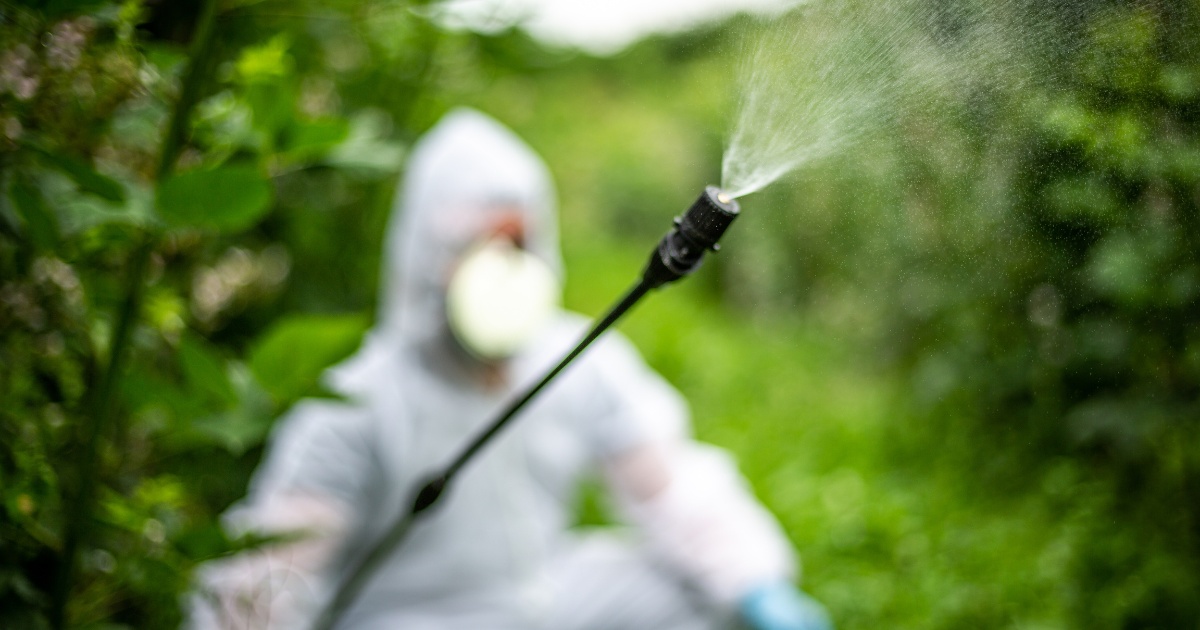
Category: Cooperative Extension

The science behind Roundup and claims of link to Non-Hodgkin's Lymphoma
December 04, 2023 Written by Kerry H. Richards, PhD; Coordinator University of Delaware Pesticide Safety Education Program
What is it?
Roundup herbicide (with the Active Ingredient of glyphosate) was first introduced by Monsanto in 1974. This herbicide is most commonly used in agriculture; however, it is also used in forestry, professional lawn care, and by private homeowners.
About the controversy
Most people now associate Roundup with claims that it causes non-Hodgkin’s lymphoma and the large legal settlements awarded based on those claims. Science and regulatory decision-making show a different perspective. In the United States, the Environmental Protection Agency (EPA) regulates pesticides. Other countries have similar regulatory oversight.
The concern over Roundup/Glyphosate began in 2015 when the International Agency for Research (IARC) classified glyphosate as a probable human carcinogen (group 2A). This classification was made based on eight animal carcinogenicity studies and was made before the release of several significant broad-ranging scientific studies.
The most significant study, which was not peer-reviewed in time to be considered by IARC, was the Agricultural Health Study (AHS). The AHS included a prospective group of licensed pesticide applicators from North Carolina and Iowa. Of the 54,251 pesticide applicators participating in the study, 44,932 (82.8%) used glyphosate. In a 2018 peer-reviewed article "Glyphosate Use and Cancer Incidence In The Agricultural Health Study" in the Journal of the National Cancer Institute, the authors concluded, “In this large, prospective cohort study, no association was apparent between glyphosate and any solid tumors or lymphoid malignancies overall, including Non-Hodgkins Lymphoma (NHL) and its subtypes.
EPA response
EPA’s conclusions do not agree with IARC’s conclusion that glyphosate is “probably carcinogenic to humans.” In a recent review of glyphosate, EPA considered a significantly more extensive and relevant dataset than the International Agency on the Research for Cancer (IARC). The EPA’s dataset consisted of 15 acceptable carcinogenicity studies, including studies submitted to support registration of glyphosate and studies EPA identified in the open literature. As a result, in February 2020, the EPA’s Interim Decision (ID) regarding glyphosate indicated that the EPA found that there are no risks of concern to human health when glyphosate is used in accordance with its current label. EPA also found that glyphosate is unlikely to be a human carcinogen. Even though EPA’s findings were challenged in a June 2022 June 17, 2022, by the U.S. Court of Appeals for the Ninth Circuit, EPA maintains the underlying scientific findings regarding glyphosate, including its finding that glyphosate is not likely to be carcinogenic to humans.
EPA’s cancer classification is consistent with other international expert panels and regulatory authorities, including the Canadian Pest Management Regulatory Agency, Australian Pesticide and Veterinary Medicines Authority, European Food Safety Authority, European Chemicals Agency, German Federal Institute for Occupational Safety and Health, New Zealand Environmental Protection Authority, and the Food Safety Commission of Japan and the Joint Food and Agriculture Organization/World Health Organization (FAO/WHO) Meeting on Pesticide Residues.
The bottom line
Pesticides are poisonous; that is how they control pests. However, as EPA maintains and scientific evidence proves, when used according to label directions, Roundup and other pesticides can be safely used according to the label directions.
More resources
- Chemical Search (EPA risk assessments, decisions, and other documents)
- Glyphosate Registration Review Docket # EPA-HQ-OPP-2009-0361
- Revised Glyphosate Issue Paper: Evaluation of Carcinogenic Potential EPA’s Office of Pesticide Programs, December 12, 2017, DP Barcode: D444689 TXR#: 0057688 fEPA-HQ-OPP-2009-0361-0073_content.pdf
- Glyphosate General NPIC Fact Sheet
